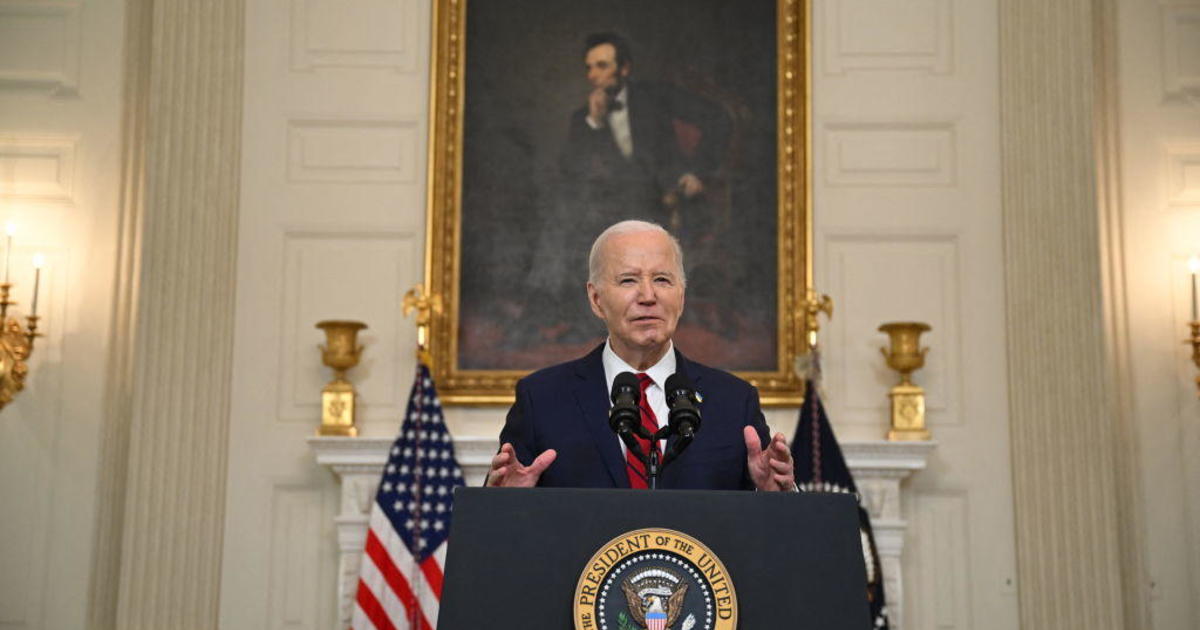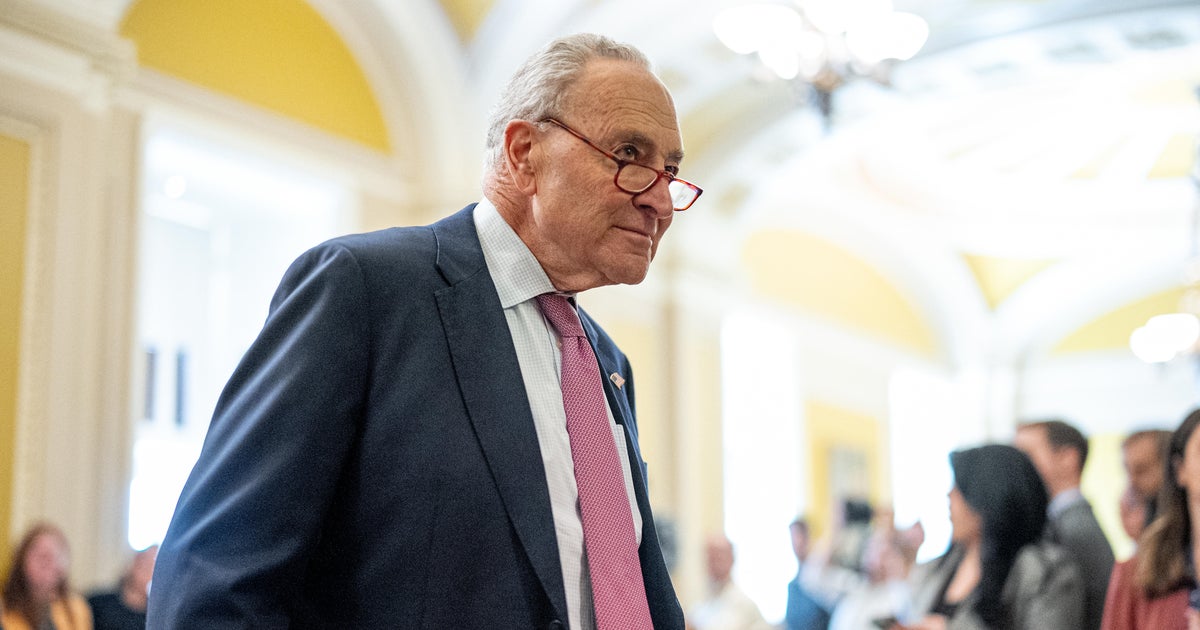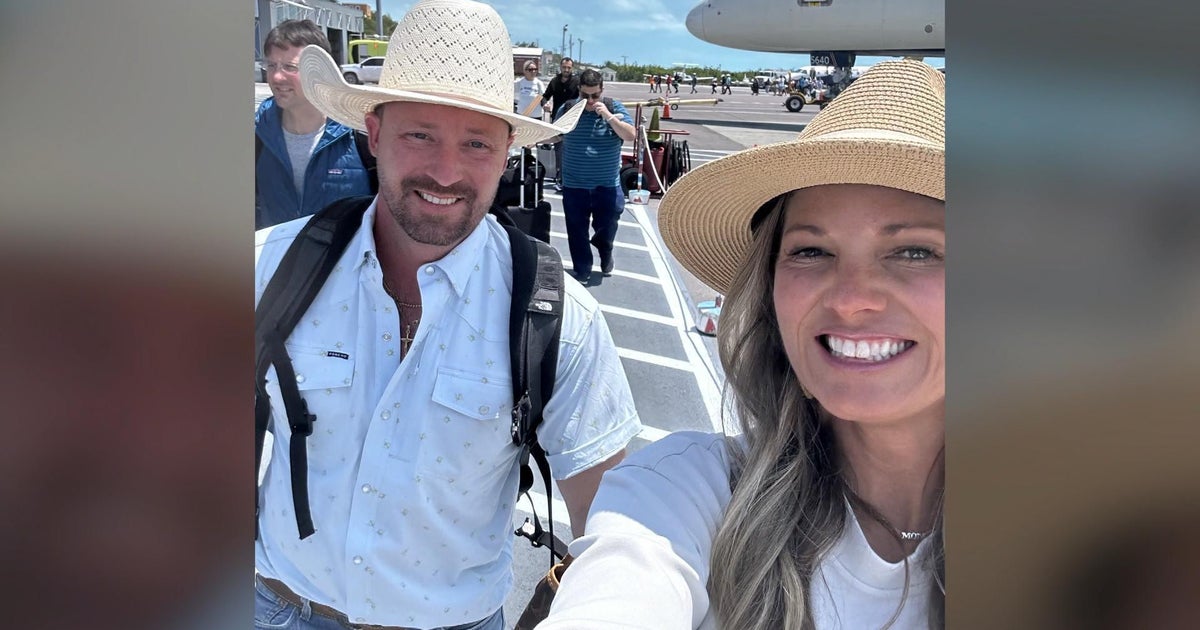OMB Director Mick Mulvaney interview: Full Transcript
After weeks of behind-the-scenes negotiations between House Republicans and the White House, the House narrowly approved a bill last week to repeal and replace Obamacare along party lines. It now faces an uncertain future in the Senate.
CBS News' chief Washington correspondent and "Face the Nation" host John Dickerson sat down with Mick Mulvaney, director of the White House Office of Management and Budget, to discuss the bill -- and more.
What follows is a transcript of the conversation, which aired Sunday on "Face the Nation."
JOHN DICKERSON: Good morning, Mr. Director.
MICK MULVANEY: Thank you for having me, John.
JOHN DICKERSON: Thank you for being here. If I get health care through Obamacare, what kind of promises does this bill make to me?
MICK MULVANEY: That it will actually be there. One of the reasons that we're pushing so hard to replace Obamacare -- by the way I was on it, when I was in the House of Representatives. People don't realize that. I was actually onI was on the exchanges. And one of the promises we're making to people is that the health care that we will be providing will actually be sustainable and be there. One of the stories that I don't think is getting nearly enough coverage is that fact that Obamacare is already failing in places like Iowa and I think even Virginia found out this week they won't have coverage in some places. So one of the big pushes that we're making is we're going to create a system that will actually sustainable and can survive and provide health care.
JOHN DICKERSON: But of course people hear about the Congressional Budget Office assessment of this House bill and when you say, "It will be there for them," they think, "But wait a minute. The C.B.O. said, '24 million people will lose coverage.'" So it won't be there for those 24.
MICK MULVANEY: Yeah, I saw the C.B.O. score. And when you get down into the details on it, one of the things you see is that the C.B.O. assumes that once the mandate is gone, people will voluntarily drop off of expanded Medicaid. Think about that for a second. The C.B.O. is assuming in getting to that 24 million people that you get Medicaid for free but once the mandate that you take it is gone you'll voluntarily give up that free benefit. It's just absurd. We've talked it I think when that first analysis came out. The C.B.O., we thought, really missed the mark. They missed the mark a couple years ago on how many people would sign up. And we think they've missed the mark again on how many people will lose coverage.
JOHN DICKERSON: Let's say they really miss the mark and it's only 15 million people. I mean, that's a lot of people still. Did they really miss the mark by 24 million?
MICK MULVANEY: But, again, compared to what? So much of the dialogue today is sort of compared to this ideal of what people thought Obamacare was going to be and what they want it so desperately to be. The real thing to measure it against is against what Obamacare really is. Face it. People are losing coverage today in Iowa again, for example, under Obamacare. People have 100% increases today in Arizona under Obamacare. That's the measure. Not against the ideal of what they thought or wanted Obamacare to be.
JOHN DICKERSON: So then is the final ending point we're at here basically people will lose coverage but just not as much as you think they would have lost under Obamacare?
MICK MULVANEY: No, I think what they're going to end up with is a different type of system that is more state driven. One of the things I think you saw in the bill this week as the bill sort of evolved was devolving more and more control to the state. When the first version of the bill came out a couple weeks ago, we did that extensively with Medicaid. I used to be in the state government. And we used to beg the federal government, "Give us more control over Medicaid. Give us the money, but let us provide for our own people at the local and state level." And our bill did that. And you saw a little bit more of that, again, as the bill evolved, giving more and more control to the state.
JOHN DICKERSON: The president has said he will not sign or support anything that doesn't help his voters. And here's an assessment from Avik Roy in Forbes. He is no fan of Obamacare. But he writes this. "Millions of low-income Americans in their 50's and 60's will be priced out of the insurance market while millions of upper-income Americans who don't need the help will get a big tax credit." Many of the people adversely affected by the A.H.C.A., the bill that passed the house, "are Trump voters whose favorite candidate campaigned on insurance for everybody." So Avik Roy and a lot of others have said older voters will see their premiums go up. Working class people will face costs that will cause them to not have insurance coverage. That seems to be a direct blow to a promise the president made.
MICK MULVANEY: Yeah, and I'm not familiar with that gentleman's report. Not familiar what version of the bill he looked at. I know, for example, as we went through the process more money was set aside to help folks who might be in that 50 to 65 bracket. But face it. We're all sort of guessing right now because the negotiation is ongoing. The bill that passed out of the House is most likely not going to be the bill that is put in front of the president. The Senate will have their chance to change the bill, improve the bill. The negotiations will continue again. So I think it's important we reserve judgment on what the president will or won't sign until we know what's in front of him.
JOHN DICKERSON: So the president kept saying this is a great bill and it's a good bill. But it's incomplete is what you're saying.
MICK MULVANEY: No. I'm saying that the Senate is part of the government. This is a bill that passed out of the House. You and I are about the same age. We remember Schoolhouse Rock when we were kids and, "I'm just a bill. Yes, I'm only a bill." And we're going to go through that process. Is it ugly? Maybe. Is it slow? Yes. But it's the right way to do it. And it's how we're going to handle this bill.
JOHN DICKERSON: The president said in the Rose Garden, quote, "We will have great health care for everyone in our nation." When we're done with the Schoolhouse Rock process, will everyone in the nation be covered as the president promised in the Rose Garden?
MICK MULVANEY: I think everybody will have coverage that's better than what they had under Obamacare.
JOHN DICKERSON: But will -- I mean, he says everybody in the nation. So even Obamacare didn't cover everyone.
MICK MULVANEY: Well, again, what we talked about before is the access to it. Remember what Obamacare gave you. Obamacare gave you insurance but not health care. A lot of folks who were technically insured either couldn't afford the premiums or couldn't afford the copay. And that's what we've been driving at. Giving people the care that they want, the quality that they need, the affordability that they deserve. That's what we're talking about. Actual medical care. Not just insurance.
JOHN DICKERSON: So, but the president, when he says, "Everyone will have health care," that sounds like a pretty simple thing to either say yes or no. That's going to happen.
MICK MULVANEY: And we'll look forward to doing that.
JOHN DICKERSON: So everyone will have health care at the end of this process. Let me ask you a question about this bill. Should House members who passed it go home, and have town halls, and campaign on it?
MICK MULVANEY: Absolutely. Without reservation. In fact, I would be surprised if that's not exactly what they're doing. That's what I would do. In fact, I commented in this last four or five weeks. I think it's been four or five weeks since the health care bill didn't come to a vote like we expected. And I sort of put my old congressman hat on and said, "I wouldn't want to go home and explain to people why we didn't vote on it." I'd be ecstatic about going back and saying, "Look, here is what we did. Here is the process. Was it ugly? Yeah. But did we get it done? Did we follow through on a promise to repeal in the House? Yes." No, I think it would be something that Republicans should run to, not run away from.
JOHN DICKERSON: The president this week on the budget question said that we should have a good shutdown. What's as good shutdown?
MICK MULVANEY: Yeah, I saw that tweet. In fact, I saw that tweet about two minutes before I walked in to do the press reports on the 2017 funding bill. But here's what I think it is. I think the president is frustrated that the process in Washington is broken. What we just did this week was fine and passable but not ideal. The appropriations, the spending process, Congress using the power of the purse has been broken here in Washington for more than 10 years. And I think a good shutdown would be one that could help fix that. It's part of that overall drain-the-swamp mentality about Washington, D.C. This president is willing to think outside the box and do things differently around here in order to change Washington. And if that comes to a shutdown in September, so be it.
JOHN DICKERSON: Okay. We'll have you back in September and see if the lights are still on, Mr. Director. Thanks so much for being—
MICK MULVANEY: Well, face it. No one thought the lights would be on this week, but they were. So don't ever underestimate the president.
JOHN DICKERSON: All right. Thanks so much.
MICK MULVANEY: Thanks, John.



